Netherlands
Amsterdam

Netherlands
Amsterdam
From the world-renowned museums to the iconic Canal Ring, enjoy the essentials of what this liberal city can offer in one day
FULL ITINERARY
- City
- Culture
- Traveled in July 2018
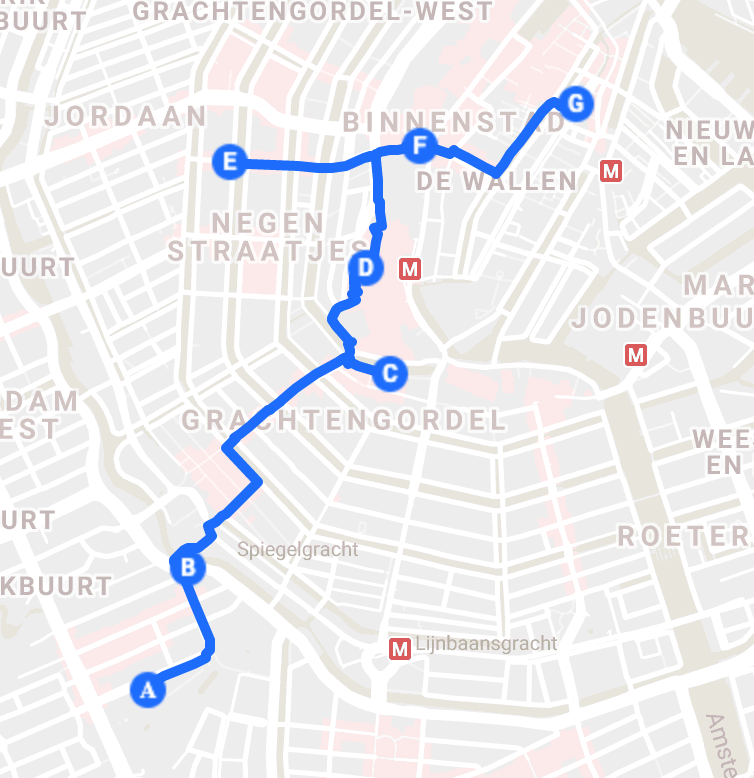
Day 1
Amsterdam City Center
Explore central Amsterdam | Overnight in Amsterdam
8:00 am
Arrival
- Getting to city center
Getting to the city center from airport is easy. A taxi costs about 40 euros and takes 20 minutes. Alternative you can take a train for about 10 euros or a bus.
If you arrive by train, train station (Amsterdam Centraal) is located in the heart of the city center.
10:00 am
Museum Quarter 🅐
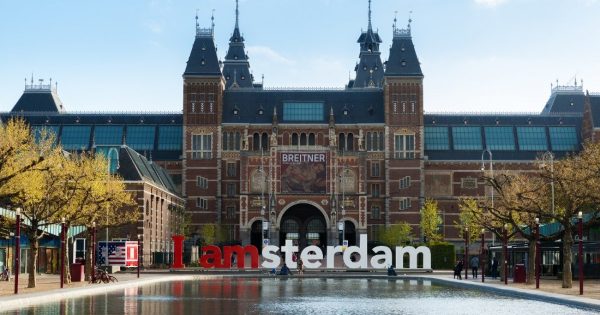
No trip to Amsterdam is complete without stopping by at least one of its world-famous museums such as Rijksmuseum and Van Gogh Museum in the Museum Quarter. Given the limited time, it’s best to choose one museum to visit for the morning.
The iconic I heart Amsterdam sign is around the corner in front of Rijksmuseum. It had been removed in 2018 but is back.
- Van Gogh Museum
We visited Van Goph Museum and it took about 2-3 hours. Ticket costs €19 and is highly recommended to book online in advance.
12:00 pm
Lunch
- Dutch Pancakes
Whether it’s for breakfast or lunch, don’t forget to try Dutch pancakes, which are a lot thinner and larger than American pancakes. This is one of the delicacies that we’ve been missing for years.
2:00 pm
Canal Cruise 🅑
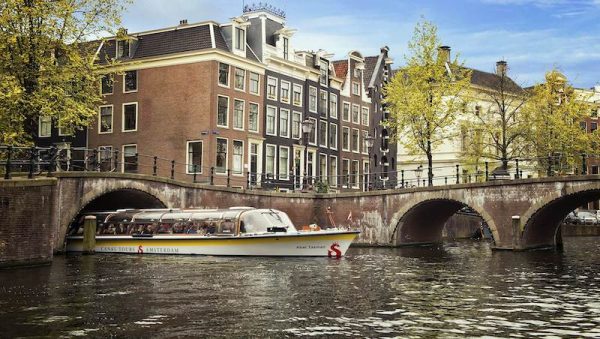
A touristy thing to do indeed, but taking a small cruise to experience Amsterdam’s UNESCO canal rings and bridges on water offers a fascinating viewpoint of the city. I was particularly intrigued by the houseboats along the canal. Most canal cruise tours last about an hour and departs from Stadhouderskade 501, approximately 5 minute walk from the Museum Quarter. For a more romantic atmosphere, choose an evening tour and see the bridges light up.
3:30 pm
Bloemenmarkt 🅒
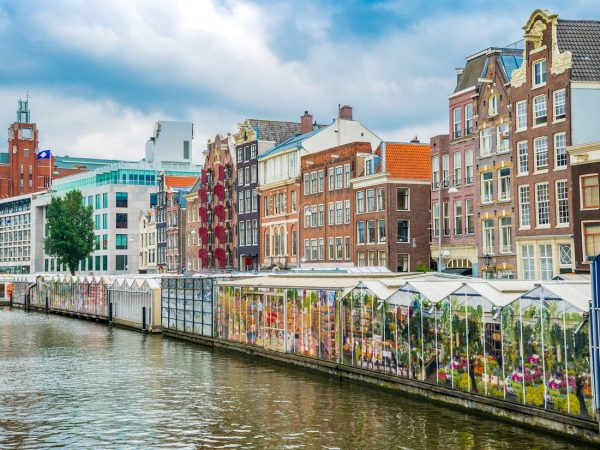
The famous floating flower market on the Singel canal dates back to 1862, when flower growers would sail their wares on barges into the city centre via the Amstel River. Today, the barges are fixed and mainly a souvenir place for tourists. Only a few shops sell flowers. I was a little disappointed frankly as there was nothing special about the shops.
4:00 pm
Begijnhof 🅓
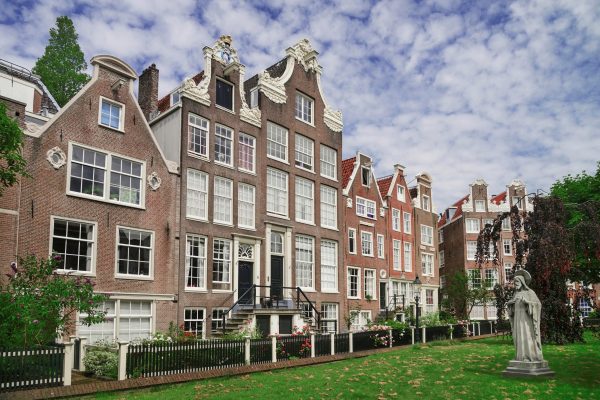
Something very Dutch and historical is the “hofjes” remaining in the city. These are well-maintained, privately funded courtyards surrounded by almshouses mainly for elderly women to cohabitate in a religious-oriented community. The hofjes have been around in the Netherlands since the Middle Ages.
Begijnhof is a well known hofje in Amsterdam. Though small, it feels like a hidden paradise tucked away from the world and is worth a quick stop if it’s on your way.
4:30 pm
The Nine Streets 🅔
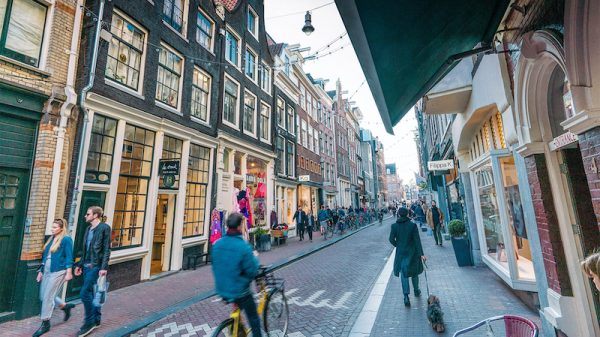
In between the Prinsengracht, Keizersgracht, Herengracht and Singel canals lies the picturesque area known to locals as De Negen Straatjes or “The Nine Streets”. Filled with boutique stores and trendy cafes, it’s a great place to explore central Amsterdam and its waterways, and to sit down and enjoy a bite, a drink, or a joint in the cozy “coffee shops”.
6:00 pm
Dam Square 🅕
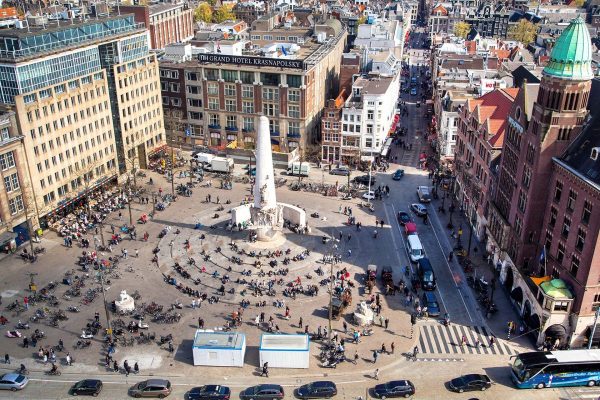
The very center of Amsterdam right outside of the Royal Palace, it would be hard for you to miss it. Created in 1300’s after a dam was built on the Amstel River, it’s now a jostling place for locals and tourists.
7:00 pm
Dinner
9:00 pm
Red Light District 🅖
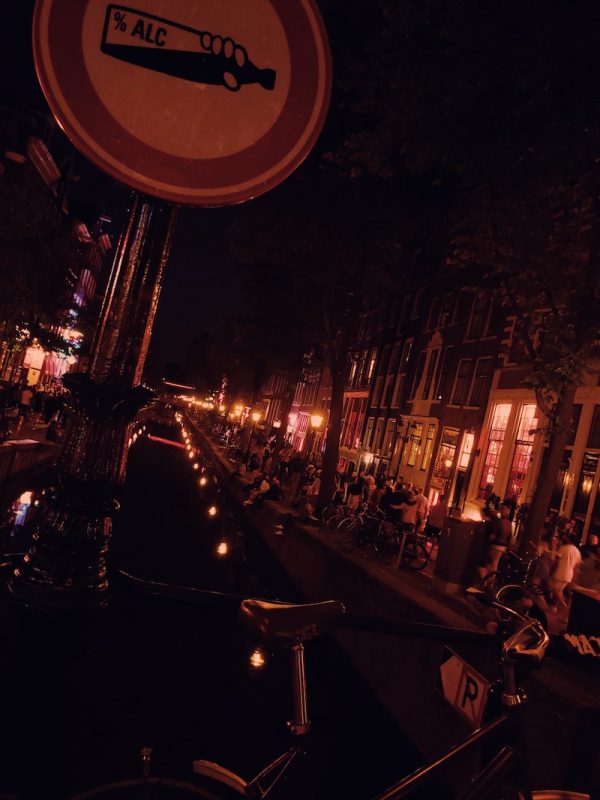
One of the first things that came to mind when talking about Amsterdam is its Red Light District. It consists of several alleys lined with small cabins where girls present themselves behind glass windows or doors under red neon lights. There are also interesting sex shows and museums in the district to check out. It’s a fascinating area. Go there at night when the area comes to light. Don’t take photos of the girls.